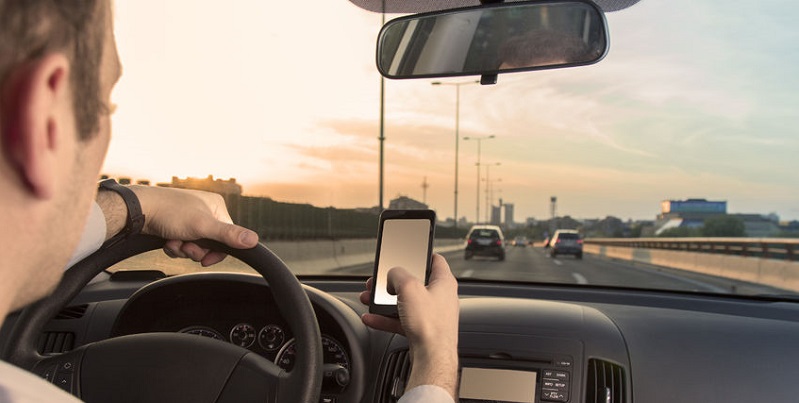Distracted driving claimed the lives of 3,477 people in 2015. Could textalyzers thwart auto accidents in Colorado caused by motorists using cellphones while driving?
Despite laws to the contrary and volumes of information describing the dangers of distracted driving, people continue to text while driving.
According to the National Highway Traffic Safety Administration, when a driver sends a text, he takes his eyes off the road for just under five seconds. That is equivalent to driving the length of a football field at 55 mph with your eyes closed.
Distracted driving claimed the lives of 3,477 people in 2015, and many states have laws against texting, talking on a cell phone, and yielding to other distractions while driving. A new law dramatically increases the penalties for texting while driving in Colorado, raising the consequences for a first offender from a $50 fine and one point on his driving record to a $300 fine and four points. Any type of interaction with a smartphone screen that leads to distracted driving is a potential violation of the law.
Breathalyzers for Texters?
A New York man whose 19-year-old son died in a wreck while riding with a texting driver had to file a lawsuit and spend six months in court to get the cellphone records proving that the driver was texting while driving.
Now he is proposing that New York police at accident scenes be equipped with a plug-in device nicknamed a textalyzer, which would allow officers to immediately examine drivers’ cellphones for evidence of tapping, swiping, or clicking.
Although constitutional and privacy advocates are not fans of the textalyzer and insist that an owner’s consent and a warrant are necessary to obtain cellphone records, the textalyzer’s technology would be used only to examine usage, not to download content or access data.
The device would display a summary of which apps on the phone were open and in use just before an auto accident, along with screen taps, swipes, and the ingoing or outgoing direction of any communication, according to a National Public Radio report. It would also be able to tell whether the driver was using the phone legally, hands-free.
While using a textalyzer, police would be able to ascertain only whether someone physically clicked or swiped the phone at the time of the accident. A warrant would be needed to obtain more detailed information.
Cellebrite, the Israel-based tech company that is developing the textalyzer, says the technology is approximately nine months away from being finished and will be tailored specifically to the legal requirements in each jurisdiction where its use is approved. Cellebrite engineers demonstrated the device for New York lawmakers and media at the state capitol in Albany in April.
Legislation Would Require Compliance
New York State is now considering legislation that would require that a person’s license be suspended for refusing to have their cell phone checked, although the refusal would not be considered a criminal offense. The idea is that when a person obtains a license, they imply consent that they will drive without distractions. Similar legislation is also being considered in Tennessee, New Jersey, and the city of Chicago.

